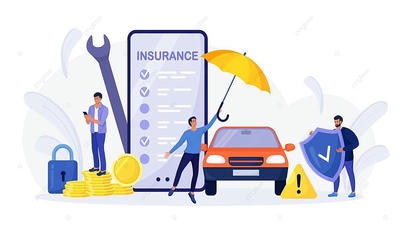Planning a significant event such as a wedding or a conference involves a multitude of details, from selecting the perfect venue to coordinating catering services and entertainment. Amidst the excitement and preparations, one crucial aspect that often gets overlooked is event insurance.

Understanding Event Insurance
What Is Event Insurance?
Event insurance is a type of coverage designed to protect event organizers against financial losses that may occur due to unforeseen circumstances. It provides a safety net against various risks associated with hosting events, such as cancellations, liability for injuries, and damage to property.
Types of Event Insurance
There are several types of event insurance, and understanding what each covers is essential for selecting the right policy for your specific needs.
-
General Liability Insurance: This is the most common type of event insurance. It protects against claims of bodily injury and property damage that may occur during the event. For example, if a guest slips and falls at your wedding venue, general liability insurance can help cover medical expenses and legal fees.
-
Cancellation Insurance: This coverage protects you financially if your event is canceled for reasons beyond your control, such as extreme weather, natural disasters, or sudden illness. For weddings, this can mean recouping costs from venues, catering, and other non-refundable expenses.
-
Liquor Liability Insurance: If your event includes alcohol, this specific coverage protects against claims arising from alcohol-related incidents. If a guest becomes intoxicated and causes damage or injury, this insurance can provide protection.
-
Artist or Vendor Insurance: If you hire entertainers, vendors, or other service providers for your event, you might want to consider insurance that covers them. This policy protects against cancellations or no-shows, ensuring you are not left without a crucial part of your event.
-
Property Insurance: This coverage protects your own property and any equipment you rent for the event. It can cover damage or theft of items such as sound equipment, decorations, and rental furniture.
-
Event Equipment Insurance: If you are renting high-value equipment for your event, this insurance can cover damage or theft of that equipment.
Why You Might Need Event Insurance for Weddings
Weddings are significant milestones, and the financial stakes can be high. Here are several reasons why obtaining event insurance for your wedding is a prudent choice.
1. Financial Protection Against Cancellations
Weddings often involve substantial financial commitments, including deposits for venues, catering, entertainment, and floral arrangements. Life is unpredictable, and unexpected events can occur. Whether it is an illness, a natural disaster, or a scheduling conflict, cancellation insurance can help recoup some of these costs if the wedding needs to be postponed or canceled.
2. Liability Coverage
With numerous guests in attendance, weddings pose the risk of accidents. Wedding venues may require proof of liability insurance. This coverage protects you against unforeseen incidents, such as someone injuring themselves while dancing or damage to the venue itself. Having liability insurance can provide peace of mind, knowing you are protected from potential lawsuits.
3. Vendor Issues
Sometimes vendors fail to deliver as promised, whether due to cancellation, a scheduling error, or equipment failure. Event insurance can cover losses incurred if a vendor does not fulfill their obligations. In some cases, liability coverage can also protect you if a vendor is involved in an accident, safeguarding you from liability claims arising from their negligence.
4. Alcohol-Related Claims
If you plan to serve alcohol at your wedding, liquor liability insurance can protect against claims resulting from alcohol-related incidents. Should a guest become intoxicated and cause property damage or injuries, your liability insurance can handle the costs associated with those claims.
5. Protecting Gifts and Personal Belongings
Weddings often involve the exchange of gifts and personal items, which can be at risk of theft or damage. Event insurance can provide coverage for stolen or damaged gifts, ensuring you do not suffer financial loss as a result of unfortunate circumstances.
Why You Might Need Event Insurance for Conferences
Conferences, whether in-person or virtual, involve logistical complexities and large groups of people. Here are several reasons why securing event insurance for conferences is a wise decision.
1. Financial Investment
Conferences often require a considerable financial investment, including booking venues, paying for speakers, catering, and advertising. Cancellation insurance protects that investment by covering costs if the event must be canceled due to unforeseen circumstances.
2. Liability Coverage for Attendees
Conferences attract various attendees, including guests and keynote speakers. Because of this, the risk of accidents increases. If an attendee injures themselves at your conference or damages property, general liability insurance can cover related claims, protecting you from financial repercussions.
3. Coverage for Event Cancellation
Just as with weddings, unexpected events can disrupt conferences. Whether a speaker gets sick, extreme weather threatens the venue, or there are logistical issues, cancellation insurance offers peace of mind by covering losses associated with an unplanned cancellation.
4. Protection Against Vendor Failures
Conferences typically rely on various vendors, including audio-visual specialists, catering groups, and transportation services. If a vendor fails to meet their obligations, event insurance can help cover the costs of finding replacements or dealing with scheduling conflicts.
5. Protecting Brand Reputation
A poorly managed conference can lead to negative publicity. If attendees suffer injuries, face inconvenience, or experience issues with accommodations, having adequate insurance coverage can help mitigate reputational damage, allowing for smoother resolutions without the financial burden.

How to Determine If You Need Event Insurance
While many events benefit from insurance coverage, not every situation necessitates it. Here are several factors to consider when deciding whether to obtain event insurance for weddings or conferences.
1. Event Scale and Complexity
Assess the scale and complexity of your event. Larger events with numerous moving parts and stakeholders typically carry higher risks and may warrant insurance coverage. Conversely, smaller events with fewer attendees may require less coverage, potentially making insurance unnecessary.
2. Venue Requirements
Many venues necessitate proof of insurance before they will book events. Review the venue’s contract for requirements regarding insurance. If required, you will want to secure event insurance regardless of your personal preferences.
3. Financial Stakes
Consider the total investment in your event. If the financial commitment is substantial, obtaining insurance can safeguard that investment and mitigate potential losses.
4. Risk Assessment
Evaluate the potential risks associated with your event. Analyzing details such as the nature of the event, the number of guests, the venue environment, and any high-risk activities can help determine the need for coverage.
5. Personal Circumstances
If personal circumstances could lead to a sudden cancellation—like health issues or travel concerns—insurance might provide necessary protection. Additionally, if you plan on serving alcohol at your event, having liquor liability insurance is a prudent choice.
6. Consult with Others
Engage in discussions with event planners, venue managers, or legal advisors who may have insights into insurance needs. Their expertise can guide you in determining the necessity for insurance and help you navigate available options.
How to Purchase Event Insurance
Once you determine the need for event insurance, the process of purchasing coverage involves several steps:
1. Research Insurance Providers
Begin by researching insurance companies that specialize in event insurance. Look for companies with a good reputation, strong customer service, and experience in handling events similar to yours.
2. Compare Quotes
Request quotes from multiple providers to compare coverage options and pricing. Ensure you understand what is covered under each policy, including limits and exclusions.
3. Understand Coverage Limits
Review the coverage limits of each policy. Determine whether the limits adequately address your potential financial exposure in the event of a claim.
4. Read the Fine Print
Carefully read through the terms and conditions of the policy. Pay attention to the exclusions and conditions that may apply, as they can significantly impact what is ultimately covered.
5. Discuss with an Insurance Agent
Consider consulting with an insurance agent specializing in event insurance for guidance on specific policies. They can assist with any questions you have and help you identify areas of potential risk.
6. Purchase Coverage
Once you have selected the appropriate policy that aligns with your needs and budget, proceed with the purchase. Read through the documentation carefully before signing and ensure that all your questions have been addressed.
Conclusion
Event insurance can be a valuable investment for both weddings and conferences, providing financial protection against a range of unforeseen circumstances. From cancellation costs to liability claims, the potential risks associated with hosting significant events make insurance an important consideration.
Prioritizing the need for event insurance involves assessing the scale of your event, understanding venue requirements, and evaluating financial commitments. With various coverage options available, it is possible to select a policy that meets your unique needs and protects you and your attendees.
Whether you are celebrating a wedding or hosting a conference, ensuring you have adequate insurance coverage can provide peace of mind and allow you to focus on enjoying your event without the worry of potential liabilities or financial losses. Taking the time to secure event insurance is a proactive step in safeguarding your investment and ensuring a successful event.



